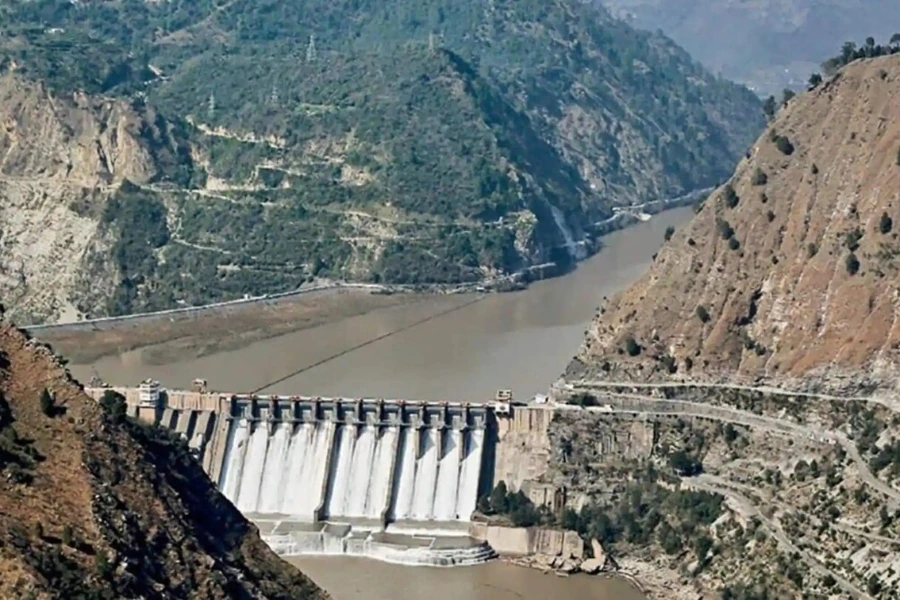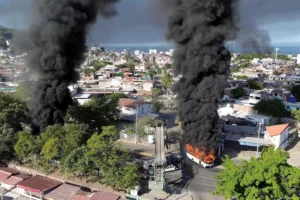
Indo-Pak water dispute: In an important move, Pakistan reached out to India, requesting that it reconsider its recent announcement to suspend the Indus Water Treaty. Pakistan’s approach comes after India’s announcement to suspend the multilevel agreement between the two countries regarding water use. It is following a terrorist attack in Pahalgam that killed 26 visitors. The loss of 26 visitors made the attack newsworthy. It provoked conversations about countries interacting with each other, the safety of water, and the policy concerns of governments.
The Background on the Indus Water Treaty
The Indus Water Treaty was signed in 1960 between India and Pakistan. It was a treaty to share water that was mediated by the World Bank. It divides the water of the Indus basin and has been in place since its signing. Water in use of six rivers, even with continuous warfare and conflicting levels of situations. It has been politically stable for over sixty years – until now.
India’s consideration of the suspension to the treaty denotes a shift in its posture in the bilateral relationship with Pakistan. It is especially concerning terrorism. After the situation in Pahalgam, India could not take any chances. All indications led the Indian authorities to determine that there were Pakistani citizens acting who were associated with terrorists or belonged to the banned organization called Lashkar-e-Taiba.
Pakistan’s Official Request
As reported by The Times of India, Pakistan’s Water Resources Ministry submitted an official letter to India’s Jal Shakti Ministry. The letter, written and signed by Secretary Syed Ali Murtaza, characterized India’s decision as “unilateral and illegal.” It suggested the action would have severe negative effects on “millions of Pakistani nationals and their agricultural economy.”
The letter argued that water is a critical need for human beings Stopping supply suddenly is “akin to an attack on the citizens of Pakistan and its economy.” In addition, the letter attempted to reactivate diplomatic talks about an issue that both countries have historically been able to avoid conflicts.
The Schedule: Operation Sindoor and More
The letter purportedly arrived at Indian officials about the time India was conducting Operation Sindoor. It consisted of targeted strikes on terrorist camps, announced that crossed the border. The military operation lasted three days, followed by a very precarious ceasefire.
Despite the temptation, New Delhi has shown no willingness to change its position.
A senior government official has reminded reporters of Prime Minister Narendra Modi’s blunt statement. “Blood and water cannot flow together,” suggesting that national security will remain paramount.
What Justified India’s Stopping of the Treaty
India’s officials have argued that the Indus Water Treaty was enacted in “good faith and neighborliness.” It is often considered lopsided – in favor of Pakistan. Regardless, the numerous incidents of terrorism across the border now have, according to Indian officials, and has “affected the spirit” of the treaty.
At least one insider who understands this well has also reminded that a treaty never supersedes political or security changes. Therefore the treaty does not need to be reviewed. A senior Indian official observed, “By employing terrorism in its strategy, Pakistan has compromised the goodwill from which the treaty emerged.”
Impacts on Agriculture and Water Management
The timing of the end of the treaty is noteworthy. Pakistan is beginning its sowing season and the uncertainty about the water supply is already creating alarm for many farmers.
The fluctuations in water levels have now also been impacted. At least in part, by India discharging and drawing water from its reservoirs from the Baglihar and Salal hydropower stations on the Chenab River in Jammu & Kashmir. This has caused even greater uncertainty about flows downstream.
The uncertainty of water supply has affected the agricultural economy of Pakistan, and added another layer of food security and crop yield concerns.
Conclusion
As tensions between India and Pakistan escalate, the Indus Water Treaty – considered to be a safe have against instability between the two countries – now faces an uncertain future. Pakistan’s case is pivotally humanitarian and economic; while India’s case is pivotally national security, and ever present concerns about terrorism on the borders and transnational dynamics.
According to the recent news updates, the world will be watching to see how this plays out over the next couple of weeks. At a time when tensions are high in India-Pakistan relations are dominating the headlines, this event also raises a number of important questions regarding the role of natural resources in political conflict.






dqcj08
5vds52